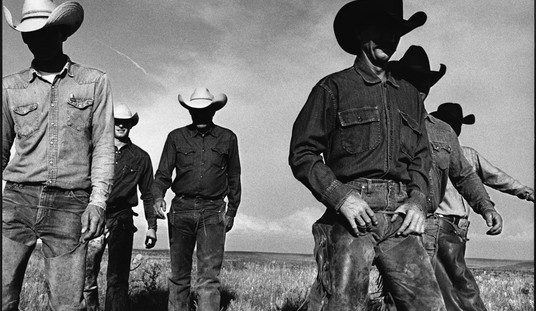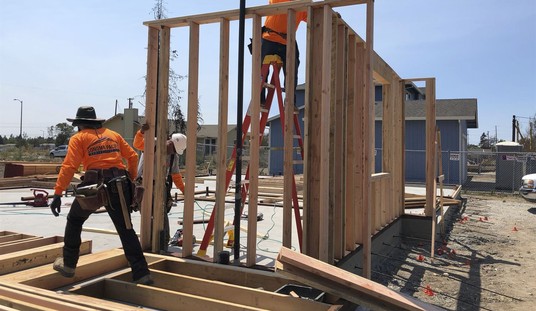
California’s New Use Of Force Laws Are The Result Of Politically Fostered Mistrust Of Police
The State of California just enacted new Use Of Force legislation for its law enforcement officers. On Monday, according to the San Fransisco Chronicle
Gov. Gavin Newsom signed AB392, which directs police to “use deadly force only when necessary in defense of human life” and, when possible, to use techniques to de-escalate a confrontation before shooting.
The bill does not explicitly define “necessary,” though courts could consider the actions of both the officer and the suspect when determining whether a shooting was justified. The law will take effect Jan. 1.
According to the Los Angeles Times, this was the result of a widening gap between police departments and the minority communities they serve, a gap exacerbated by police shootings seen by some as racially motivated. From the Times
SACRAMENTO — After an emotional fight that laid bare the chasm between California’s communities of color and police, Gov. Gavin Newsom Monday signed Assembly Bill 392, creating what some have described as one of the toughest standards in the nation for when law enforcement officers can kill.
Intense private negotiations and public outcry influenced the final language of the legislation, which will take effect on Jan. 1. Recent fatal police shootings of unarmed black men, in particular, prompted activists to seek changes in rules that in some cases were more than a century old. Though the final bill doesn’t go as far as some wanted, supporters say it’s a first step in changing the culture of policing in California.
The Times goes on to say that this should not have any deleterious effect on day-to-day policing in large metropolitan areas.
The new language will require that law enforcement use deadly force only when “necessary,” instead of the current wording of when it is “reasonable.” In large urban law enforcement departments that already train for de-escalation and crisis intervention, day-to-day policing will probably not noticeably change.
I’m not so sure, mainly because this procedural change isn’t the only thing going on in the arena of community-police relations. In many locales, there has been a loss of trust between the communities and the police that serve them. In certain departments, this could be a self inflicted wound. In my brief, 10 year experience in law enforcement, the Sheriff’s Office I worked for was well regarded in the Black neighborhoods while the City PD, wasn’t so well thought of. A typical comment from residents was, “County don’t play.” And we didn’t. We went by the rules and enforced the law, no favorites…and the community knew it. They didn’t always like us, but they did trust us.
In other locales, race baiters have used demonstrably false statements to inflame unfortunate incidents, into a full blown race riots. Such was the case in Ferguson, MO, where Michael Brown, a black man who had just finished robbing a convenience store attacked a white police officer responding to the robbery call. The officer fearing for his safety, shot and killed Brown as he continued to attack him. The officer was cleared by a grand jury after several witnesses and laboratory results confirmed his version of the events; that Brown had attacked him and tried to get his firearm.
That didn’t stop the race hustlers such as Al Sharpton from inciting riots that featured violence and property damage to the point that the National Guard had to be called out. Ferguson Police Department is now under a Federal consent decree due to an investigation by the Obama/Holder DOJ.
The final straw in California, was the shooting death of Stephon Clark by Sacramento Police in 2018. At the time of the shooting, Clark was unarmed, but was holding a cellphone which the Police thought was a gun. The officers were not charged.
California cities aren’t the only areas that are in the throes of an anti-police societal shift. Others we’ve seen in the news, Detroit, New York City and President Trump’s favorite example of Democrat governance, Baltimore, Maryland. It’s this societal shift, not police procedure restrictions that is the biggest danger in California’s new law.
Police Officers are professionals. Given certain legal constraints, the vast majority of these dedicated public servants work within those constraints and are able to effectively police their communities. This new law, in and of itself, is unlikely to change that. It’s the societal environment that resulted in its passage that is the problem.
Police in many locales aren’t generally trusted…and it’s not always their fault. I had the opportunity to speak with David Webb on his Tuesday morning show on Sirius XM. The subject was the Eric Garner incident in New York City, where Mr. Garner died as a result of the struggle that ensued when Police Officers attempted to arrest him on outstanding warrants.
Mr. Webb opined that Mr. Garner would certainly be alive today, if he hadn’t resisted lawful arrest—and he’s right. However, that’s not the entire story of mistrust. That particular story starts with civil authorities at all levels passing legislation that is meant to feel good but makes no sense to the populace it is inflicted on.
In Garner’s case, it was feel good cigarette taxes that are so onerous, they have fostered a burgeoning industry in bootleg smokes sold as singles. Like most folks, I believe in obeying the law (well except for highway speed limits) even if I think a particular ordinance is stupid. Moreover, “broken windows” policing, a proven method, says that even minor, infractions of “stupid” laws need to be addressed. Which, as a result of a neighborhood complaint regarding Garner’s activities, the Police were doing.
As I indicated to Webb, there’s an old military leadership adage—Never give an order, that you know damned well will not be obeyed. If the Soldier disobeys, he’s in trouble. You have to punish him. You are in trouble as a leader for punishing the Soldier for what he, his buddies and you all know…is BS. Many of the city ordinances in New York City are just that…an insult to the citizenry they are inflicted on…I mean really…a limit on the size of fountain drinks?
Our society is based on voluntary compliance with the law. Generally speaking, most of us support obedience all of our laws even when we might disagree with a few of them. But there comes a point when societal segments have had enough silliness and their respect for the law in general wanes. This is exacerbated when politicians like Bill DeBlasio New York) and Stephanie Rawlings-Blake (Baltimore) throw their own law enforcement agencies under the bus. What’s worse, we even have Democrat Presidential candidates calling Michael Brown’s death a “murder.” This after, the officer in question was fully exonerated.
How are citizens expected to respect Law Enforcement when their nominal superiors don’t? Why should police officers go out of their way via “self initiated activity,” when the payoff for being proactive is being excoriated by your ultimate boss, the Mayor. So they don’t. They answer their calls, try not to get fired and nothing more. Their communities, defend into chaos…just like Baltimore.
In short, requiring police to have a good, articulable reason for using deadly force is the least of their problems. Public distrust, most of it fostered by corrupt politicians using them as scapegoats and the subject of feel good legislation, is definitely at the tippy top.
David Webb can be found on Sirius XM Channel 125 9-12AM M-F
Mike Ford, a retired Infantry Officer, writes on Military, Foreign Affairs and occasionally dabbles in Political and Economic matters.
Follow him on Twitter: @MikeFor10394583
You can find his other Red State work here.













Join the conversation as a VIP Member